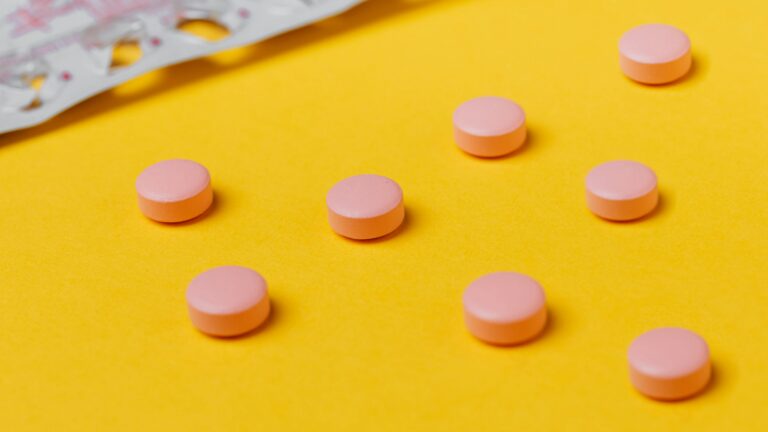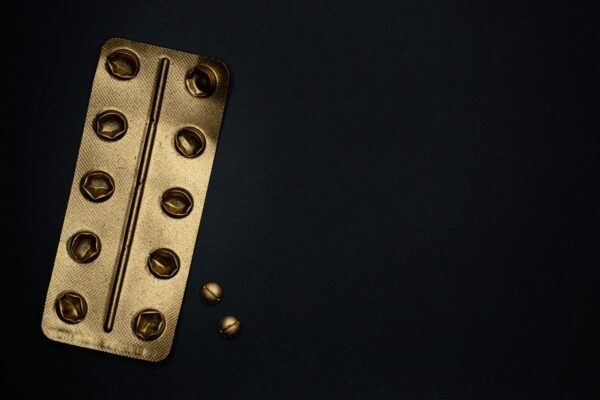When it comes to the topic of erectile dysfunction (ED), it’s not just the physical factors that need consideration. Often, the medications we take for mental health can also have a profound impact on sexual performance. One such medication, Isocarboxazid, a monoamine oxidase inhibitor (MAOI), may be more commonly associated with treating depression and anxiety disorders, but it’s important to understand how it can influence erectile function as well. In this article, we will dive deep into Isocarboxazid and its potential effects on erectile dysfunction, providing you with comprehensive, in-depth information on the topic.
- What Is Isocarboxazid?
- How Isocarboxazid Affects Sexual Health
- Is There a Link Between Isocarboxazid and Long-Term Erectile Dysfunction?
- The Bottom Line: What You Need to Know About Isocarboxazid and Erectile Dysfunction
- Studies, Sources, and Links
- 1. The Effects of Antidepressants on Sexual Function: A Review
- 2. Sexual Dysfunction in Depressed Patients: A Review of the Literature
- 3. The Role of Neurotransmitters in Erectile Dysfunction
- 4. Antidepressants and Sexual Side Effects: The Impact of Different Classes
- 5. Erectile Dysfunction and Antidepressants: A Review of Clinical Data
- 6. Effects of Lifestyle Changes on Erectile Dysfunction
- 7. Cognitive Behavioral Therapy (CBT) for Erectile Dysfunction
- 8. Viagra and Cialis: Medical Overview of ED Medications
- 9. Pharmacological Treatments for Erectile Dysfunction
- 10. The Impact of Antidepressants on Sexual Health: A Global Perspective
- FAQs: Isocarboxazid and Erectile Dysfunction
- Question: What is Isocarboxazid?
- Question: Can Isocarboxazid cause erectile dysfunction?
- Question: Why does Isocarboxazid affect erectile function?
- Question: What can I do if I experience erectile dysfunction while taking Isocarboxazid?
- Question: Is erectile dysfunction caused by Isocarboxazid permanent?
- Question: Can I continue taking Isocarboxazid if I experience erectile dysfunction?
What Is Isocarboxazid?
Isocarboxazid is a monoamine oxidase inhibitor (MAOI) used primarily in the treatment of depression and anxiety disorders. It works by blocking the action of monoamine oxidase, an enzyme that breaks down neurotransmitters like serotonin, dopamine, and norepinephrine in the brain. This leads to increased levels of these chemicals, which can improve mood and alleviate symptoms of depression. However, this change in neurotransmitter levels can have a direct or indirect effect on sexual function, making it important to assess the potential side effects carefully.
How Isocarboxazid Affects Sexual Health
While Isocarboxazid can be highly effective for managing mood disorders, it’s crucial to recognize its potential impact on sexual health. As erectile dysfunction (ED) can result from a variety of factors—both psychological and physical—it’s worth exploring the underlying mechanisms that link Isocarboxazid use to ED.
Neurotransmitter Imbalance
As mentioned earlier, Isocarboxazid increases the levels of neurotransmitters such as serotonin, dopamine, and norepinephrine in the brain. These neurotransmitters play significant roles in both mood regulation and sexual function. However, a disruption in the balance of these chemicals can lead to sexual side effects, including decreased libido, delayed ejaculation, and in some cases, erectile dysfunction. While this is not universally experienced, it can certainly affect individuals who are sensitive to changes in neurotransmitter activity.
Impact on Blood Flow
Erectile dysfunction often results from poor blood flow to the penis, which can be influenced by a range of factors, including vascular health, psychological stress, and medication side effects. Some antidepressants, including Isocarboxazid, may have a vasoconstrictive effect, meaning they can tighten blood vessels, which in turn might impair proper blood flow to the genital area. This could exacerbate ED symptoms, especially in men already at risk due to other health factors such as high blood pressure or diabetes.
Psychological Factors
Depression and anxiety themselves are often linked to sexual dysfunction. For men who are already struggling with mood disorders, the psychological burden of these conditions can contribute to feelings of inadequacy and stress about performance. Taking medication like Isocarboxazid to manage these symptoms can help alleviate some psychological factors, but the sexual side effects from the drug may cause additional stress. This, in turn, can lead to a vicious cycle where both mental and physical health are affected by erectile dysfunction.
Managing Erectile Dysfunction Caused by Isocarboxazid
If you’re experiencing erectile dysfunction while taking Isocarboxazid, it’s essential to know that you are not alone, and there are options to address the issue. Here are some strategies for managing or mitigating ED related to Isocarboxazid use.
Consult Your Healthcare Provider
The first step in addressing any side effect of medication is to speak with your healthcare provider. They can evaluate whether the erectile dysfunction is indeed related to Isocarboxazid and may adjust your treatment plan accordingly. Sometimes, simply switching to a different antidepressant or anxiety medication with fewer sexual side effects can make a world of difference. Alternative therapies or medications that don’t interfere with sexual function might be better suited for your needs.
Lifestyle Adjustments
Certain lifestyle changes can help mitigate erectile dysfunction. This includes regular exercise, eating a balanced diet, managing stress, and avoiding smoking and excessive alcohol consumption. Improving vascular health and maintaining a healthy weight can also reduce the impact of ED, regardless of whether it’s related to Isocarboxazid or other factors.
Medications for Erectile Dysfunction
If lifestyle changes and adjustments to your medication don’t resolve the issue, medications like Viagra (sildenafil) or Cialis (tadalafil) can be helpful. These medications are designed to improve blood flow to the penis and are commonly used to treat ED. However, it’s crucial to speak with your healthcare provider before starting any of these medications, especially if you’re already taking antidepressants like Isocarboxazid, to avoid potential drug interactions.
Therapy for Psychological Causes
For those whose erectile dysfunction has psychological roots, therapy can be incredibly beneficial. Cognitive-behavioral therapy (CBT) or counseling may help address anxiety or depression that could be exacerbating the sexual dysfunction. A sex therapist can also provide targeted strategies to deal with performance anxiety or relationship issues, which might improve overall sexual health and function.
Is There a Link Between Isocarboxazid and Long-Term Erectile Dysfunction?
In most cases, erectile dysfunction caused by Isocarboxazid or other antidepressants is temporary and reversible. Once the medication is adjusted, switched, or discontinued, many men experience an improvement in sexual function. However, for some, the effects of long-term use may persist, especially if other underlying health issues are involved.
It’s important to understand that erectile dysfunction can also be influenced by age, lifestyle choices, and chronic health conditions. If Isocarboxazid is not the primary cause of your ED, these other factors should be addressed for a more comprehensive treatment approach.
The Bottom Line: What You Need to Know About Isocarboxazid and Erectile Dysfunction
If you’re struggling with erectile dysfunction and taking Isocarboxazid, it’s essential to stay informed and proactive about your health. While the medication can cause sexual side effects, there are numerous ways to manage these issues effectively. With the right approach, adjustments to your medication, and possible lifestyle changes, you can regain control over your sexual health and improve your quality of life.
Don’t hesitate to have an open discussion with your healthcare provider about any concerns related to sexual side effects. With the right support, erectile dysfunction doesn’t have to be a permanent issue. Together, you and your doctor can create a plan that works for you, ensuring that you feel confident, healthy, and at your best—inside and out.
Remember, guys, it’s all about balance—a little humor, a little action, and a lot of care for your overall health. Don’t let ED get you down; you’ve got this!
Studies, Sources, and Links
When exploring the relationship between Isocarboxazid and erectile dysfunction (ED), several studies, research papers, and reputable sources can provide valuable insights into the mechanisms at play, the prevalence of sexual side effects, and possible treatment options. Here are some notable studies and resources that support the information discussed in this article:
1. The Effects of Antidepressants on Sexual Function: A Review
- Source: National Institutes of Health (NIH)
- Summary: This comprehensive review explores the effects of various antidepressants, including MAOIs like Isocarboxazid, on sexual function. The paper highlights that sexual side effects, including erectile dysfunction, are common with many antidepressants, particularly MAOIs.
- Link: NIH – Effects of Antidepressants on Sexual Function
2. Sexual Dysfunction in Depressed Patients: A Review of the Literature
- Source: Journal of Clinical Psychiatry
- Summary: This review article discusses the connection between sexual dysfunction and depression, with a specific focus on the role that antidepressants, such as Isocarboxazid, play in exacerbating these issues. It provides an in-depth analysis of how neurotransmitter imbalances linked to depression treatments contribute to ED.
- Link: Journal of Clinical Psychiatry – Sexual Dysfunction in Depressed Patients
3. The Role of Neurotransmitters in Erectile Dysfunction
- Source: National Institutes of Health (NIH)
- Summary: This study outlines the physiological mechanisms behind erectile dysfunction and the role of various neurotransmitters such as serotonin, dopamine, and norepinephrine—which are influenced by Isocarboxazid—in regulating sexual function.
- Link: NIH – Neurotransmitters in Erectile Dysfunction
4. Antidepressants and Sexual Side Effects: The Impact of Different Classes
- Source: The American Journal of Psychiatry
- Summary: This article evaluates the sexual side effects of different classes of antidepressants, including MAOIs, SSRIs, and SNRIs. It examines how sexual dysfunction—including erectile dysfunction—is a prevalent issue among users of these medications, providing valuable data on the occurrence rates.
- Link: American Journal of Psychiatry – Antidepressants and Sexual Side Effects
5. Erectile Dysfunction and Antidepressants: A Review of Clinical Data
- Source: Sexual Medicine Reviews
- Summary: This review compiles clinical data on the prevalence of erectile dysfunction associated with antidepressant treatments, particularly focusing on Isocarboxazid and other MAOIs. It offers a clinical perspective on the rates of sexual dysfunction and outlines possible treatment pathways.
- Link: Sexual Medicine Reviews – Erectile Dysfunction and Antidepressants
6. Effects of Lifestyle Changes on Erectile Dysfunction
- Source: Mayo Clinic
- Summary: Mayo Clinic provides expert insights into the role that lifestyle factors such as diet, exercise, and stress management play in alleviating erectile dysfunction. This resource is particularly helpful for individuals seeking non-medication-based approaches to managing ED.
- Link: Mayo Clinic – Lifestyle Changes for Erectile Dysfunction
7. Cognitive Behavioral Therapy (CBT) for Erectile Dysfunction
- Source: American Psychological Association (APA)
- Summary: This article discusses how Cognitive Behavioral Therapy (CBT) has been effectively used to treat psychological causes of erectile dysfunction, including performance anxiety and stress caused by medication side effects.
- Link: APA – Cognitive Behavioral Therapy for Erectile Dysfunction
8. Viagra and Cialis: Medical Overview of ED Medications
- Source: WebMD
- Summary: WebMD provides a detailed overview of commonly prescribed erectile dysfunction medications, including Viagra (sildenafil) and Cialis (tadalafil). These drugs are often used by men experiencing ED, including those taking antidepressants like Isocarboxazid, to address their symptoms.
- Link: WebMD – Viagra and Cialis
9. Pharmacological Treatments for Erectile Dysfunction
- Source: British Journal of Urology International (BJUI)
- Summary: This research paper presents a detailed breakdown of various pharmacological treatments for erectile dysfunction, including those designed to work in conjunction with medications like Isocarboxazid, which may have unintended effects on sexual performance.
- Link: BJUI – Pharmacological Treatments for ED
10. The Impact of Antidepressants on Sexual Health: A Global Perspective
- Source: World Health Organization (WHO)
- Summary: This global study looks into the broader impacts of antidepressant use on sexual health, focusing on erectile dysfunction as one of the most common adverse effects for those undergoing long-term treatment with drugs like Isocarboxazid.
- Link: WHO – Impact of Antidepressants on Sexual Health
By exploring these sources, you can gain a deeper understanding of how Isocarboxazid may influence erectile dysfunction and learn more about potential solutions and treatments. Whether it’s adjusting medications, making lifestyle changes, or considering other therapeutic options, there are numerous ways to approach and manage this condition effectively.
FAQs: Isocarboxazid and Erectile Dysfunction
Question: What is Isocarboxazid?
Isocarboxazid is a medication used to treat **depression** and anxiety disorders. It is a type of **monoamine oxidase inhibitor (MAOI)** that works by increasing levels of neurotransmitters like serotonin, dopamine, and norepinephrine in the brain.
Question: Can Isocarboxazid cause erectile dysfunction?
Yes, **Isocarboxazid** can cause **erectile dysfunction (ED)** as a side effect. This is primarily due to its impact on **neurotransmitters**, which can affect libido, erectile function, and sexual performance.
Question: Why does Isocarboxazid affect erectile function?
Isocarboxazid affects the balance of neurotransmitters like **serotonin** and **dopamine**. While these chemicals help manage mood, they can also interfere with the normal processes of sexual arousal and performance, leading to issues like **erectile dysfunction** or a reduced libido.
Question: What can I do if I experience erectile dysfunction while taking Isocarboxazid?
If you’re experiencing **erectile dysfunction** with **Isocarboxazid**, it’s important to talk to your healthcare provider. They may adjust your medication or suggest alternative treatments. **Lifestyle changes**, such as improving diet and exercise, or medications like **Viagra** or **Cialis**, can also help manage ED.
Question: Is erectile dysfunction caused by Isocarboxazid permanent?
In most cases, **erectile dysfunction** caused by **Isocarboxazid** is temporary. Once the medication is adjusted or replaced, many men experience a return to normal sexual function. However, it’s important to work with your healthcare provider to find the best solution for your situation.
Question: Can I continue taking Isocarboxazid if I experience erectile dysfunction?
While it’s possible to continue taking **Isocarboxazid** with erectile dysfunction, it’s essential to consult your doctor. They may recommend switching medications or exploring other solutions for **sexual health**, depending on your specific needs and symptoms.
Disclaimer: This article is for informational purposes only and not a substitute for professional medical advice. Always consult your healthcare provider for guidance specific to your condition.





